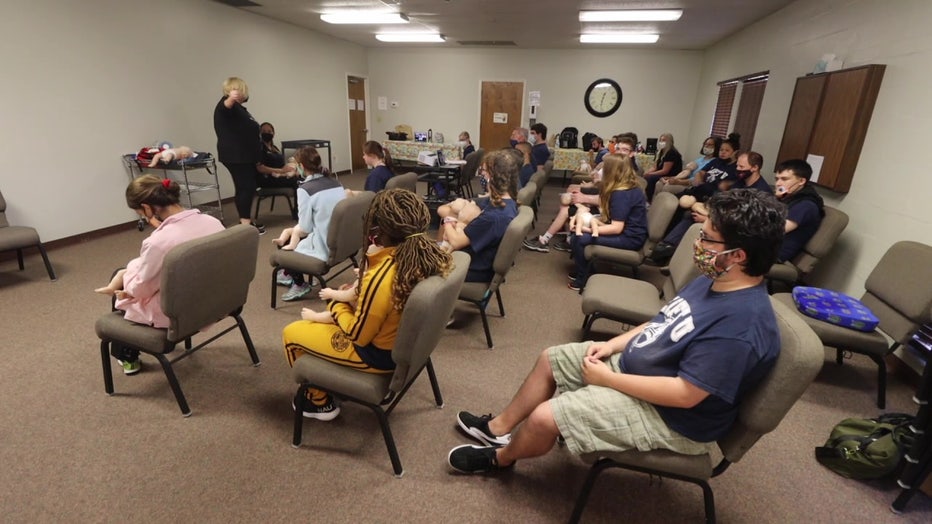Will lack of social interaction during pandemic have lasting impact on those with autism?
SEMINOLE, Fla. - At times, 21-year-old Aaron Moore has found the past year just as confusing as everyone else.
"I was more confused about the whole toilet paper thing, because like, it’s just toilet paper. I don’t get it," he recalled.
Moore was diagnosed with autism when he was 7.
"I had to figure out how far apart 6 feet was, because I was still learning math at that point," he said.
His mother, Angela Moore, was concerned when his school went virtual in March of 2020.
"I was so worried. The only social interaction he was getting was once a week at church and even that got cut off," she said.

But they were happy when his school offered in-person learning in the fall. Moore attends LiFT, or Learning Independence For Tomorrow, in Seminole. More than 90% of the students at LiFT are on the autism spectrum.
"Ever since I went to LiFT, I’ve been breaking the shell as some people say," Moore shared.
RELATED Pandemic poses unique challenges for children with autism
Older students like Moore learn employable life skills like CPR in LiFT University, while younger students in LiFT Academy get an education in an environment that celebrates neurodiversity. But the pandemic hasn’t made things easy.
"We wanted to ensure that not only were our student’s education needs met, but that social connection and that sense of community that our students really need. So yeah, it was a big worry," explained LiFT executive director Shawn Naugle.
Featured
Pandemic poses unique challenges for children with autism
For many children on the autism spectrum, isolation is embraced and even enjoyed. But experts say seclusion during the COVID-19 pandemic is the last thing many children with autism need.
Implementing social distancing measures meant cutting down on social interactions and breaking up routines that special needs children require.
David Grigg, an internship coordinator and teacher at LiFT, says including more social time was important for students, even for those learning remotely.
"It was just a difficult transition to think how we are going to advance these social skills that they were building up so well. And are we going to see regression?" asked Grigg.
They did not; in fact, they began to observe progression.
"As time went on, I was amazed at how quickly they were able to adapt to a new way of doing it," explained Grigg.
Angela Moore agrees.
"Aaron handled it better than I did in some situations. I don’t even think he missed a beat," she said.
"That’s something we tell them all the time as they’re working. Things come up, problems happen and life is never perfect," Grigg added.
CONNECT WITH FOX 13:



